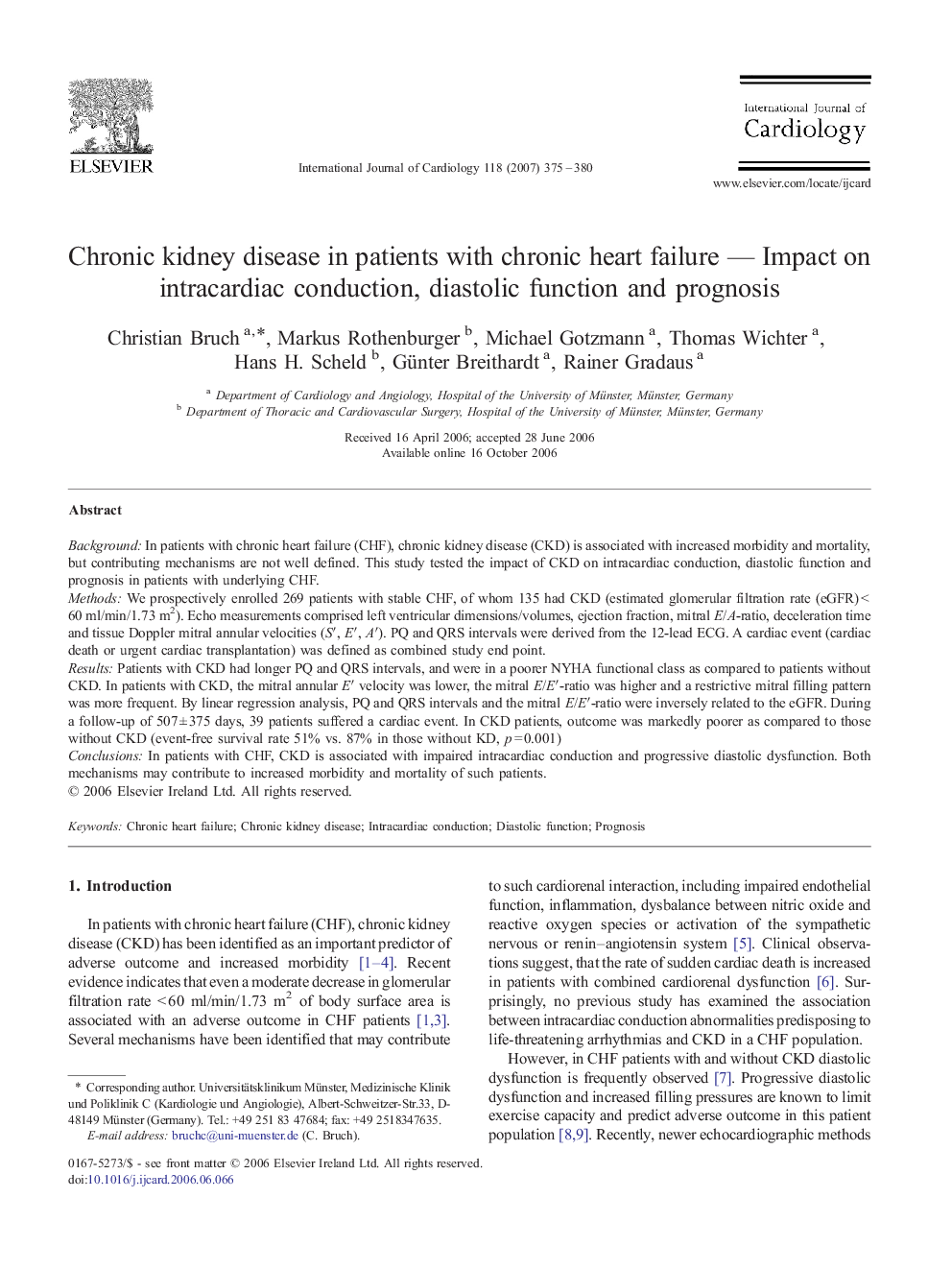| Article ID | Journal | Published Year | Pages | File Type |
|---|---|---|---|---|
| 2936337 | International Journal of Cardiology | 2007 | 6 Pages |
BackgroundIn patients with chronic heart failure (CHF), chronic kidney disease (CKD) is associated with increased morbidity and mortality, but contributing mechanisms are not well defined. This study tested the impact of CKD on intracardiac conduction, diastolic function and prognosis in patients with underlying CHF.MethodsWe prospectively enrolled 269 patients with stable CHF, of whom 135 had CKD (estimated glomerular filtration rate (eGFR) < 60 ml/min/1.73 m2). Echo measurements comprised left ventricular dimensions/volumes, ejection fraction, mitral E/A-ratio, deceleration time and tissue Doppler mitral annular velocities (S′, E′, A′). PQ and QRS intervals were derived from the 12-lead ECG. A cardiac event (cardiac death or urgent cardiac transplantation) was defined as combined study end point.ResultsPatients with CKD had longer PQ and QRS intervals, and were in a poorer NYHA functional class as compared to patients without CKD. In patients with CKD, the mitral annular E′ velocity was lower, the mitral E/E′-ratio was higher and a restrictive mitral filling pattern was more frequent. By linear regression analysis, PQ and QRS intervals and the mitral E/E′-ratio were inversely related to the eGFR. During a follow-up of 507 ± 375 days, 39 patients suffered a cardiac event. In CKD patients, outcome was markedly poorer as compared to those without CKD (event-free survival rate 51% vs. 87% in those without KD, p = 0.001)ConclusionsIn patients with CHF, CKD is associated with impaired intracardiac conduction and progressive diastolic dysfunction. Both mechanisms may contribute to increased morbidity and mortality of such patients.
